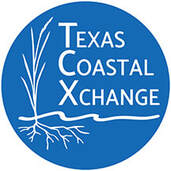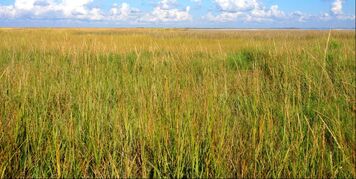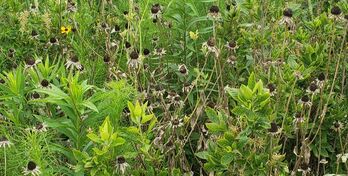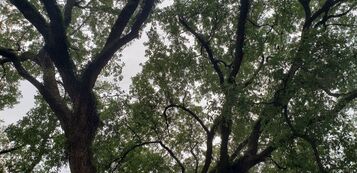Why Coastal Ecosystems Matter
An ecosystem is a community of all of the interacting living things, including plants, birds, fish, and bacteria, and the environment in which they live. Coastal ecosystems provide a variety of benefits to society including carbon storage, commercial and recreational fisheries, migratory bird habitat, and flood reduction. These ecosystems provide us with products like food and timber. They regulate our environment through processes like pollination, decomposition, and water purification, and are home to a variety of different living things, from deer to shrimp. The natural world also has emotional, spiritual, and cultural significance for us all.
These ecosystems are fundamental to our very existence. Yet, we are losing them at a rapid rate to development, erosion, and sea level rise.
The loss of coastal marshes and prairies has decreased their capacity for the removal of CO2 from the atmosphere at the same time that new development in these same areas is drastically increasing the release of CO2 from the burning of fossil fuels. In addition, the paving over and development of bottomland hardwood forests and prairies has reduced the ability of these natural systems to regulate flooding and groundwater recharge at a time when we are experiencing more extreme weather events.
Thankfully, we have over 8 million acres of undeveloped coastal lands in Texas, much of which is privately owned. But this land is at risk of being lost because the cost of maintaining large tracts of land is much greater than many landowners can bear. At TCX, we want to provide a means for donors to help protect and support these ecosystems. Donations are used to provide grants to landowners for maintaining their land in a natural state and ensuring the existence of these ecosystem benefits into the future.
These ecosystems are fundamental to our very existence. Yet, we are losing them at a rapid rate to development, erosion, and sea level rise.
The loss of coastal marshes and prairies has decreased their capacity for the removal of CO2 from the atmosphere at the same time that new development in these same areas is drastically increasing the release of CO2 from the burning of fossil fuels. In addition, the paving over and development of bottomland hardwood forests and prairies has reduced the ability of these natural systems to regulate flooding and groundwater recharge at a time when we are experiencing more extreme weather events.
Thankfully, we have over 8 million acres of undeveloped coastal lands in Texas, much of which is privately owned. But this land is at risk of being lost because the cost of maintaining large tracts of land is much greater than many landowners can bear. At TCX, we want to provide a means for donors to help protect and support these ecosystems. Donations are used to provide grants to landowners for maintaining their land in a natural state and ensuring the existence of these ecosystem benefits into the future.
Ecosystems Included In The Program
We focus on three coastal ecosystems: coastal marshes, coastal prairies, and bottomland hardwood forest. By supporting carbon storage in natural coastal ecosystems, you are also supporting all of the other benefits that these ecosystems provide, such as holding flood waters, reducing the energy of storm surges, providing habitat for wildlife and native pollinators, and supporting productive fisheries and biodiversity all along the Texas Coast.
Coastal MarshCoastal marshes have been reduced to less than 50% of their historical global range. Click here to learn more about these ecosystems and their importance on the Texas coast.
|
Coastal Prairie
Texas coastal prairie once covered 6.5 million acres of the state. Today, less than 1% still remains. Click here to learn more about why these ecosystems should be protected.
|
Bottomland Hardwood ForestThe bottomland hardwood forests of Texas make up the largest remnant expanse of forest on the Gulf Coast. However, these ecosystems are threatened by fragmentation from development. Click here to learn more.
|



